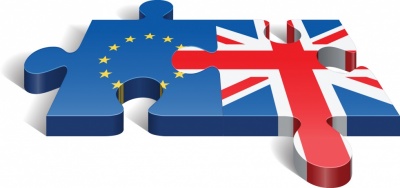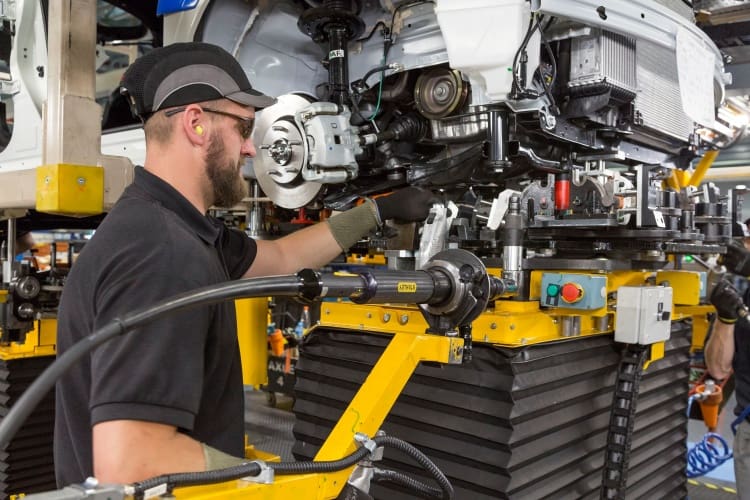 Andrew Wade, senior reporter
Andrew Wade, senior reporter
So, we finally have some clarity, and a hard Brexit looms. Theresa May’s speech yesterday outlined the key pillars of the UK’s exit strategy, including leaving the single market and the customs union. For many across industry, this is a worrying development. The prospect of tariffs and proof of origin requirements being reintroduced is difficult to countenance, and the prime minister’s assurances of as “frictionless” a trade deal with the EU as possible will do little to ease fears.
But accusations of ‘not having a plan’ can now no longer be levelled at the PM, and the solidification of the government’s position is welcome. Markets abhor uncertainty above all else, symbolised by the pound jumping in response to May’s definitive stance. However, stormy waters lie ahead. The PM delivered her speech with confidence, talking up the UK’s prospects outside the EU and even making some veiled threats to Brussels about Britain becoming a tax haven. But while a proportion of her support base will have enjoyed the rhetoric, threatening a bloc of 27 countries before anyone has sat down at the table is a questionable strategy.

Amidst all the talk of full immigration control and returning sovereignty to Westminster, May also said she wants to retain certain elements of the customs union, while leaving other aspects behind. She claims a free trade deal is in everyone’s interests, and warned that any ‘punitive’ deal would be a “calamitous act of self-harm” for the EU. But politicians across Europe have repeatedly warned that cherry-picking the favourable bits of EU membership is not going to happen. It has nothing to do with punishment. It is simply about the UK foregoing certain rights once it has left the club. If you are out, you are out, and you cannot expect the same privileges as if you are in.
Just as the UK is acting in its own interest, the remaining countries in the EU will now act in theirs. Many have claimed that it would be beneficial to the EU to agree a barrier-free trade deal. This is true, but only to a point. It is also hugely in the EU’s interest to ensure that being inside the club is more beneficial to being outside. To claim that the UK will be able to carry on trading with the EU as if nothing has happened is disingenuous. What exactly the deal looks like remains to be seen of course, but expecting Europe to roll over and acquiesce to the UK’s every demand is naïve, to say the least.
“While it is useful to have some clarity as to the future, we urgently need more details as to what our trading relationship with the EU might look like,” said James Selka, CEO of the Manufacturing Technologies Association. “We welcome the recognition that we need a comprehensive customs agreement and that trade should be as frictionless as possible. Advanced manufacturing, in the UK and Europe, depends on highly internationalised supply chains and leaving the single market raises many questions for our members.”

And what now for the UK’s automotive industry? What exactly was said to Nissan’s Carlos Ghosn to engender the company’s commitment to the Sunderland plant? Have JLR and other manufacturers been offered the same, and has the ground now shifted given that a hard Brexit is on? As alluded to above, the automotive and aerospace sectors – both major success stories for UK industry – rely on complex pan-European and international supply chains. The single market and the customs union have been key factors in enabling these two sectors to flourish, and the PM’s speech will have worried those involved.
“The recognition by the prime minister of the importance of single market arrangements for the automotive sector is critical,” said Mike Hawes, chief executive of the Society of Motor Manufacturers & Traders (SMMT). “We need government to deliver a deal which includes participation in the customs union to help safeguard EU trade, trade that is tariff-free and avoids the non-tariff and regulatory barriers that would jeopardise investment, growth and consumer choice. Achieving this will not be easy and we must, at all costs, avoid a cliff-edge and reversion to WTO tariffs, which would threaten the viability of the industry.”
But Theresa May stated yesterday that she was prepared to do exactly that, ending the two-year negotiation period with no deal rather a bad deal. It is perhaps a stance she had to take, declaring her willingness to revert to the nuclear option if agreement can’t be reached. As her impending counterpart in the US has said many times, one must always be willing to walk away from the table. But WTO rules would likely harm the UK more than the EU, perhaps with the exception of Ireland, whose trade reliance with the UK (along with the uncertainty over the border in the North) is a major cause for concern.

Lastly, the science community now faces significant difficulties. In her 12 point plan, Theresa May said she wanted to continue to work with European partners on major science, research and technology projects. But participation requires freedom of movement, and this is clearly not on the cards. Horizon 2020 funding – of which the UK has been a net benefiter to the tune of about £1bn per year – is likely to diminish over the next two years, and be cut off entirely once the UK has officially left the EU. The PM also said the UK would be willing to pay into certain European programmes but, again, there is no guarantee that the EU will play ball.
“The prime minister's assertion that there 'may be specific European programmes in which we might want to participate' gives a glimmer of an indication that the UK may bid to continue to participate in the EU science programmes that have supported the UK so extensively to date,” said Dr Sarah Main, director of the Campaign for Science and Engineering (CaSE).
“This would be a popular move with the research community. But the EU position is that participation requires free movement - which is not on the table.”
Theresa May should be commended for finally facing up to reality and acknowledging that control over immigration and remaining within the single market are not compatible. Her decision is arguably one grounded in politics rather than logic or economics, but one which perhaps had to be made given the fallout since the referendum. After nearly 50 years inside the single market, the UK will now go it alone. For all the certainty to which we were treated in the PM’s speech, they are words that have set the UK on a very uncertain course.











Water Sector Talent Exodus Could Cripple The Sector
Maybe if things are essential for the running of a country and we want to pay a fair price we should be running these utilities on a not for profit...